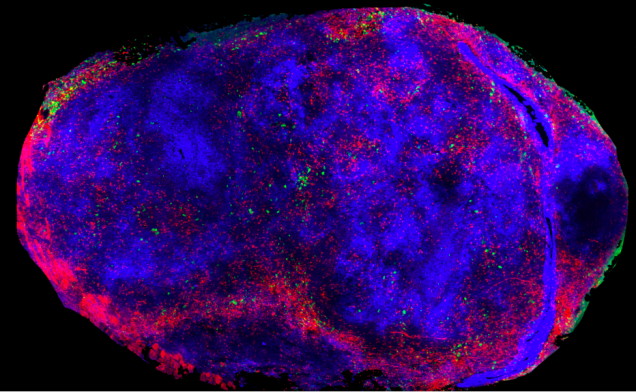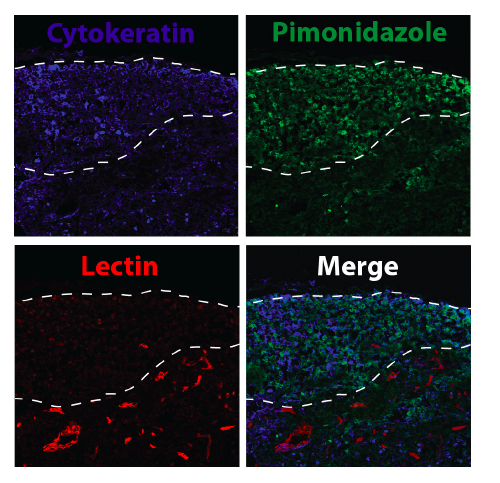T cell trafficking within tumors
Trafficking of T cells into the tumor microenvironment is critical for the success of cancer immunotherapies such as immune checkpoint inhibition and adoptive cellular transfer. We, and others, have found that T cells are excluded from many tumors, thus limiting an effective immune response against tumors. Currently, we are using preclinical models to investigate mechanisms of tumor-specific T cell entry into tumors.
 T and B cells (red and green, respectively) involved in a response against cancer cells (blue)
T and B cells (red and green, respectively) involved in a response against cancer cells (blue)
Tumor microenvironment and immune dysfunction
The tumor microenvironment consists of stromal cells and tumor-derived molecules that contribute to immune evasion and drug resistance. We have found that the local tumor microenvironment dictates stromal composition and response to therapy. While many studies have focused on the biology of primary tumors, it is also important to define the drivers of metastatic growth, since metastasis is the primary cause of cancer mortality. Our laboratory studies the contribution of the lymph node tumor microenvironment to the progression of lymph node metastases.
 Cancer cells (blue) are hypoxic (green) in regions of metastatic lymph nodes with few functional blood vessels (red).
Cancer cells (blue) are hypoxic (green) in regions of metastatic lymph nodes with few functional blood vessels (red).